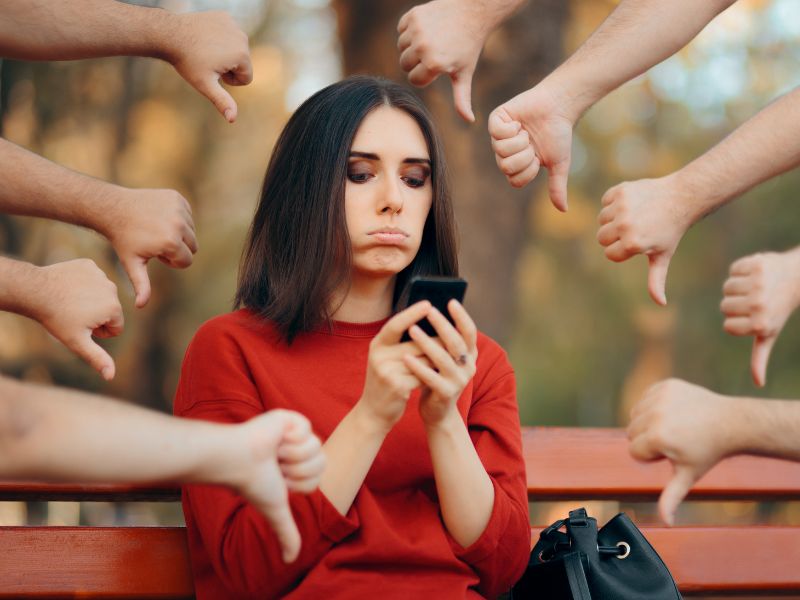In today’s digitally connected world, social media platforms have woven themselves into the fabric of our daily lives. While these platforms offer unparalleled opportunities for communication, networking, and self-expression, there is a growing concern about their potential to (re)traumatize users. As we scroll through our feeds and engage with content, it’s essential to consider the psychological impact that social media may have on our mental well-being.

Canva. com
The Double-Edged Sword Of Reminiscence
Social media has a unique way of reviving memories. While this can be heartwarming and nostalgic, it also has the potential to reopen old wounds. Users might stumble upon posts or images that remind them of past traumas, inadvertently triggering distressing emotions. This digital rehashing of traumatic experiences can disrupt the healing process and contribute to heightened anxiety and stress.
The Perils Of Comparison And Inadequacy
The curated nature of social media often presents an idealized version of people’s lives. Constant exposure to picture-perfect moments and achievements can foster feelings of inadequacy and envy. This phenomenon, known as “social media envy,” can trigger emotional trauma related to low self-esteem, body image issues, and a persistent sense of falling short.

Canva. com
Echo Chambers And Emotional Polarization
Social media algorithms are crafted to present us with content that mirrors our established beliefs and interests. While this can foster a feeling of inclusion, it also strengthens echo chambers where differing viewpoints are rarely acknowledged. Consequently, this phenomenon can contribute to heightened emotional polarization, exacerbate societal divisions, and potentially serve as a source of retraumatization for individuals who have faced discrimination, prejudice, or isolation.
Vulnerability In The Digital Spotlight
The pressure to curate a flawless online persona can be emotionally taxing. Sharing personal stories or vulnerabilities may open individuals up to support and criticism. For those with a history of trauma, negative online interactions can mirror past experiences of victimization, exacerbating feelings of insecurity and anxiety.
